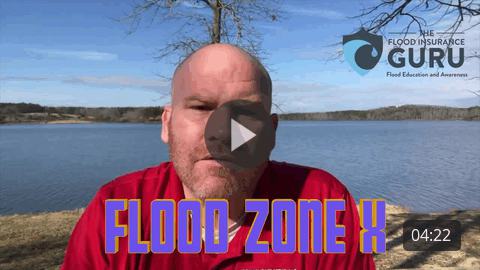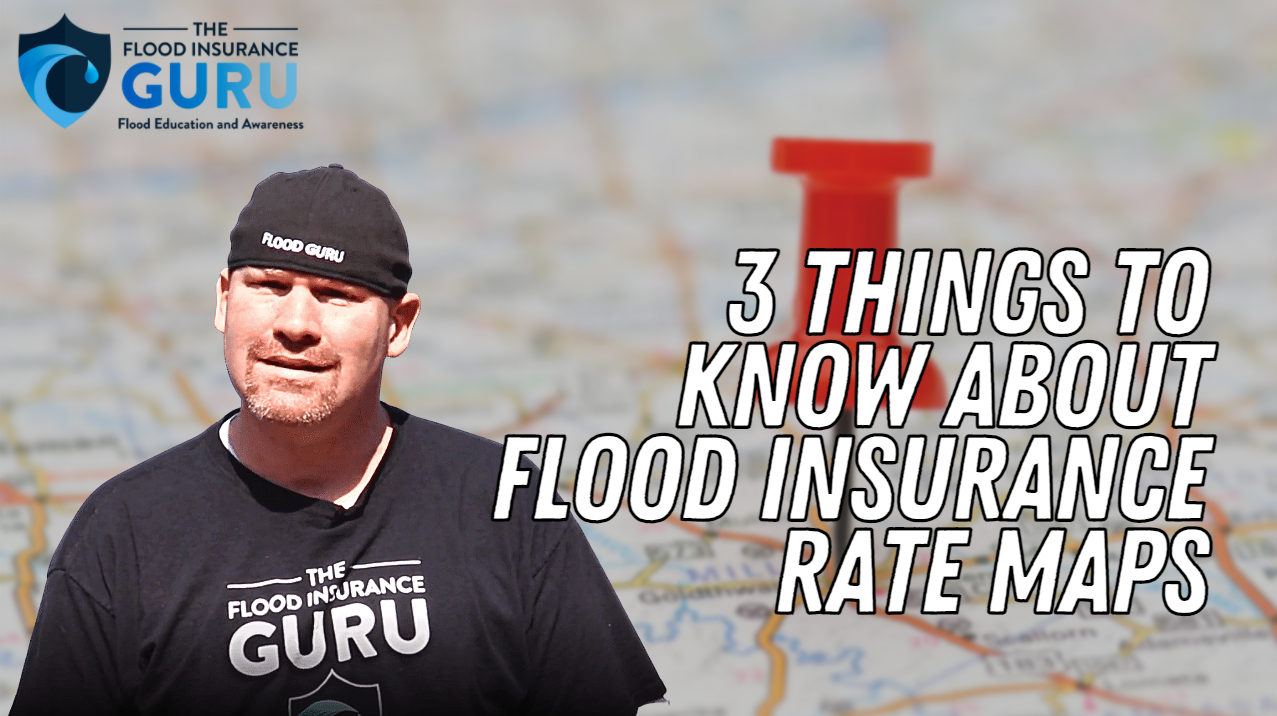Do You Really Need Flood Insurance for Your Mortgage?
February 20th, 2024
6 min read
By Chris Greene

Are Mortgages Required to Have Flood Insurance?
Do I Need Flood Insurance?
Absolutely, and here's why. Floods are the most common and costly natural disasters in the U.S., affecting homes in high-risk flood zones and beyond. Remember, it only takes one inch of floodwater to cause significant damage to your property. While homeowners insurance doesn’t cover flood damage, flood insurance does. This coverage is crucial for protecting your home and personal property from the financial impact of flooding, regardless of whether you're in a designated high-risk area or not.
What Determines My Flood Insurance Cost?
Great question! Several factors influence the cost of your flood insurance, including your home's location, the flood zone it's in according to FEMA’s flood map, the design and structure of your home, and the level of coverage you choose. Properties in high-risk flood areas typically face higher premiums, but it's a small price to pay for the significant protection and peace of mind it offers. It's also worth noting that the NFIP sets certain rates, but private flood insurance options might offer competitive pricing, so it's wise to shop around.
What Does Flood Insurance Cover?
Flood insurance is designed to protect you from the financial fallout of flood damage, which isn't covered under standard homeowners insurance policies. It's like having a safety net specifically designed for water-related disasters. There are two main types of coverage offered through flood insurance:
-
Building Coverage: This is the part of your flood insurance that covers the physical structure of your home or building. Think of it as the shield that protects the bones of your place. Here's what it typically includes:
- The building and its foundation
- Electrical and plumbing systems
- Central air and heating equipment
- Water heaters
- Built-in appliances like refrigerators and dishwashers
- Permanently installed carpeting over unfinished flooring
- Permanently installed cabinets, paneling, and bookcases
- Window blinds
- Detached garages (usually up to 10% of building coverage)
- Debris removal
-
Contents Coverage: This part covers the stuff inside your home, your personal belongings that make your house a home. Here's a look at what's typically covered:
- Clothing, furniture, and electronic equipment
- Curtains
- Portable and window air conditioners
- Portable microwaves and dishwashers
- Carpets not included in building coverage (like those installed over finished flooring)
- Washers and dryers
- Freezers and the food inside them
- Certain valuable items like original artwork and furs (up to a specific limit)
What Flood Insurance Does Not Cover?
Just as important as knowing what flood insurance covers is understanding what it doesn't cover. Here are a few things generally not covered:
- Damage caused by moisture, mildew, or mold that could have been avoided by the property owner
- Currency, precious metals, and valuable papers such as stock certificates
- Property and belongings outside of the building, like trees, plants, wells, septic systems, walks, decks, patios, fences, seawalls, hot tubs, and swimming pools
- Living expenses, such as temporary housing (if the flood makes your home uninhabitable)
- Financial losses caused by business interruption or loss of use of the insured property
Special Considerations
-
Basements and Areas Below the Lowest Elevated Floor: Coverage in these areas is limited. It generally includes things like central air units, furnaces, water heaters, washers, dryers, freezers, and the food within them. Finished walls, floors, ceilings, and personal belongings stored in a basement are typically not covered.
-
Detached Buildings: Other than garages, separate buildings require their own flood insurance policy for coverage.
-
Replacement Cost vs. Actual Cash Value: For primary residences, building coverage is usually on a replacement cost basis, which means the policy will cover the cost to rebuild your home as it was before the damage. Contents coverage, however, is often provided at actual cash value, accounting for depreciation.
Can I Get Flood Insurance If I'm Not in a High-Risk Flood Zone?
Yes, and I can't stress this enough—just because you're not in a high-risk flood zone doesn't mean you're safe from flooding. In fact, 20-25% of all flood insurance claims come from areas considered to be low or moderate risk. Flood insurance is available to homeowners, renters, and businesses, regardless of their flood zone. This is where talking to an insurance agent can really help you understand your options and ensure you're adequately protected.
What is the Flood Risk?
Flood risk refers to the probability and potential consequences of flooding in a specific area. It encompasses the likelihood of flood events occurring, the vulnerability of people, property, and infrastructure to flooding, and the capacity of a community or area to respond to and recover from flood impacts. Understanding flood risk is crucial for effective flood management, insurance planning, and disaster preparedness. Here’s a breakdown of key components that contribute to flood risk:
1. Probability of Flooding:
This aspect considers how often floods might occur in a given area. It's influenced by various factors, including geographical location, climate patterns, and the presence of rivers, lakes, or coastal areas. Areas near water bodies or in low-lying regions typically have a higher probability of experiencing floods.
2. Exposure:
Exposure refers to the presence of people, property, infrastructure, and economic activities in areas prone to flooding. High-density urban areas with significant development in floodplains are particularly exposed to flood risks.
3. Vulnerability:
Vulnerability is the susceptibility of a community or assets to be harmed when a flood occurs. It depends on factors like building construction standards, the effectiveness of local flood defenses, and the preparedness and resilience of the community.
4. Consequences of Flooding:
The potential consequences include direct impacts like damage to buildings, infrastructure, and agriculture, as well as indirect impacts such as economic disruptions, health issues, and displacement of communities.
5. Climate Change and Urbanization:
Climate change is increasing the frequency and severity of extreme weather events, including heavy rainfall, which can lead to more frequent and severe flooding. Urbanization, particularly the expansion of impermeable surfaces in flood-prone areas, exacerbates flood risks by reducing the land's natural ability to absorb rainwater.
If you want to find out the flood risk score of your property you can get it in less than 60 seconds by clicking here.
How Does the National Flood Insurance Program (NFIP) Differ From Private Flood Insurance?
That's a fantastic question. The NFIP, managed by FEMA, offers flood insurance to homeowners, renters, and businesses and works to encourage communities to adopt and enforce floodplain management regulations. On the other hand, private flood insurance is offered by private insurance companies and can sometimes provide more flexible coverage options and higher coverage limits than the NFIP. Both have their advantages, depending on your specific needs and circumstances. It's important to compare and consider both NFIP policies and private flood insurance to find the best fit for your situation.
National Flood Insurance Program Coverages
Building coverage: Up to $250,000
Contents coverage: Up to $100,000
Private Flood Insurance Coverages
Building coverage: Can exceed $250,000
Contents coverage: Can exceed $100,000
Additional living Expenses: Varies on each situation
It is important to remember no matter where you go NFIP rates will be the same but private flood insurance rates could vary greatly. The flood risk score of the property could give you a good indication of what the flood insurance premiums will be.
What Should I Do Next If I'm Considering Purchasing Flood Insurance?
First off, give yourself a pat on the back for taking this crucial step in protecting your property. The next step is to contact your insurance agent to discuss your flood insurance options. They can help you understand whether flood insurance is required for your property, the type of coverage that would best suit your needs, and whether NFIP or private flood insurance is the right choice for you. Remember, the goal is to ensure you have the coverage you need to protect your home, personal property, and peace of mind in the event of a flood.
Does Homeowners Insurance Cover Flood Damage?
Homeowners insurance typically does not cover flood damage. Standard homeowners insurance policies provide coverage for a wide range of perils, including fire, theft, and wind damage, but flood damage is usually excluded. This exclusion applies to water damage that originates from external sources, such as heavy rain, storm surges, overflowing rivers, or other similar conditions that lead to flooding.
Why Flood Damage is Excluded?
The exclusion of flood damage from standard homeowners insurance policies is primarily due to the high risk and potential for significant financial loss associated with flooding events. Flooding can cause extensive damage to multiple homes simultaneously, which could result in substantial financial exposure for insurance companies if such coverage were included in standard policies.
Where Can I buy Flood Insurance?
-
Contact Your Insurance Agent: This is your first step. Whether you're leaning towards NFIP coverage or exploring private options, your insurance agent is like your navigator through the flood insurance waters. They can help you understand your risk, coverage options, and guide you through the purchasing process.
-
Direct Through Insurers: For those who like to steer their own ship, you can go directly to insurers that offer flood insurance. This includes both companies participating in the NFIP and those offering private policies. A quick online search or a call to your current homeowners' insurance provider can point you in the right direction.
-
Online Platforms: Yes, in today's digital age, buying flood insurance can be as easy as ordering a pizza. There are online platforms and services that specialize in comparing and selling flood insurance policies from both the NFIP and private insurers. It's a great way to see your options side by side.
Things to Remember
-
There's Typically a Waiting Period: Most flood insurance policies have a waiting period from the date of purchase before your coverage goes into effect. So, if you're watching those storm clouds gather, it's best to act sooner rather than later.
-
Understand Your Coverage: Flood insurance policies can vary, especially between NFIP and private offerings. Make sure you understand what's covered, what's not, and how much protection you're getting for your property and personal belongings.
-
Assess Your Risk: Just because you're not in a high-risk flood zone doesn't mean you're safe. Over 20% of flood claims come from properties outside high-risk areas. Don't wait for the water to rise before getting covered.
So, there you have it. Whether you're looking to protect your family home, your business, or your rental property, there are plenty of avenues to secure flood insurance. Remember, in the world of flood protection, being prepared is half the battle. Don't hesitate to reach out to your insurance agent or dive into the resources available online to get started. Stay dry, stay safe, and let's keep those properties protected!
Conclusion
As the Flood Insurance Guru, my mission is to demystify flood insurance and empower you with the knowledge you need to make informed decisions about protecting your property. Floods can happen anywhere and at any time, so taking proactive steps to secure flood insurance is one of the smartest moves you can make as a homeowner or renter. If you have more questions or need help finding the right flood insurance solution, don't hesitate to reach out. Let's navigate these waters together, ensuring you're prepared for whatever comes your way.
Topics:





